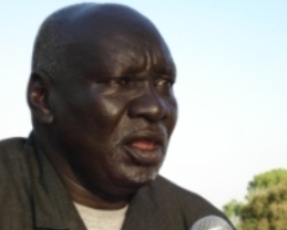S. Sudanese official dismisses succession talk in ruling party
July 1, 2017 (JUBA) – A senior official from South Sudan’s ruling party (SPLM) has dismissed reports alleging that underground talks aimed at persuading President Salva Kiir to step down from the helm were currently ongoing.

“We need to put these allegations and rumour to rest. There are no talks of secession now. If President Salva Kiir wants to retire, if he wants to leave politics at will, he will come out in person and tell the SPLM leadership that it is time for him to step down and the SPLM leadership will go through normal procedures and processes to select the successor,” Akot told Sudan Tribune on Saturday.
He added, “This is how it’s done worldwide, especially if you look at the history of revolutionaries. Look at how CCM [Chama Cha Mapinduzi] in Tanzania did their change of leadership when Julius Nyerere decided to leave politics. He was not forced to step down”.
Akot, who sits at the political bureau of the SPLM, said late Nyerere and Nelson Mandela, ex-African leaders who lead revolutions in their respective countries, ceded power without any agitation.
“There was no coup to remove Nyerere from power by the colleagues, even when he saw it wise and fit to block Benjamin Mkapa in favour of Ali Hassan. There was no uprising. He did so because he knew who would fit as the right choice to manage the affairs of the people of Tanzania at the time,” said Akot.
“That did not mean he did not like Benjamin Mkapa. He [Nyerere] liked him that was why he later became the president after Ali Hassan served. He was looking for someone from within the leadership who would maintain and establish a strong system and encourage peaceful coexistence and harmony, not only among members of the party but also across the country. The same is true for Mandela in South Africa. So why do people rush?” He asked.
Akot said not all who join revolutions eventually become presidents.
“If it is because of old age, which is what I hear being cited as the reason for pushing for changes, then who says all those who joined the revolution anywhere become the presidents all together, even if one has to serve for one month as the president,” stated Akot.
He further added, “That is something impossible”.
President Kiir, elected in March 2010, recently vowed not to step down by force, insisting it would set a bad precedent for the young nation.
South Sudan was plunged into conflict in December 2013 as the rivalry between Kiir and his then-Vice President, Riek Machar, turned into a civil war. The fighting, which has often been along ethnic lines, triggered Africa’s worst refugee crisis, with over three million people fleeing their homes.
(ST)
